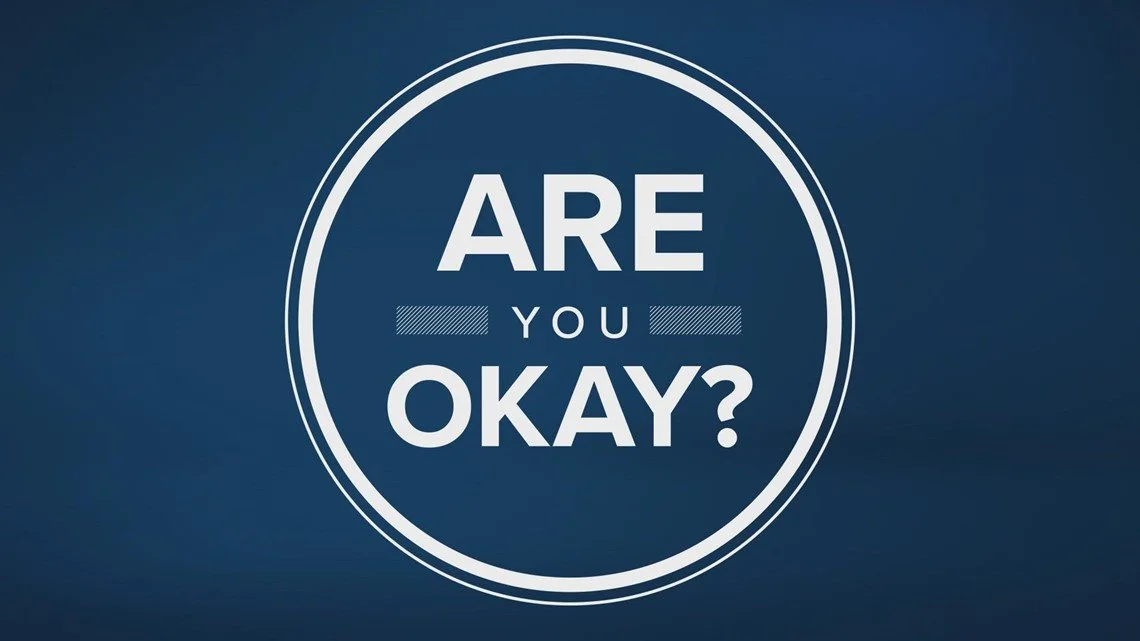World Suicide Prevention Day - 10th September 2023
Talking to Muslim Men about Suicide
1 in 5 people at some point in their lives think of suicide.
Too often men think they should be doing much more than they can.
Too often men just want peace.
Too often men are suffering in silence, feeling like they are in a bubble, with the world outside unable to make contact.
Then too often men feel they will be taking pressure of the people they care for; the people they feel they are letting down.
3/4s of suicides in the UK are men
64% of young Muslims said they experience suicidal thoughts.
Though it’s true, faith in Allah can protect us from the desperate reality of suicide it is also true that recent event like the pandemic have tested many of us in relation to our faith. We have to know that some Muslim men do attempt suicide, and this is more common in places like the US and the UK. All of us try to be and do the best we can for the people we care for our families, communities, friends, the relatives who rely on us ‘back home’. We can feel as though we let them down and then what is the point of us?
There’s a spiral of negative thinking that, unchecked can consume us. And this is not to say that life is easy or that there aren’t problems or issues, just to say that in that darkness each of us is worth so much more than we believe.
There is an Afghan saying, ‘a man is like a strong tree he does not bend’. But when a tree bends in the face of a storm it survives to grow stronger.
This is an appeal to endure to grow stronger and to use whatever you need, whatever help to do so at the point when things feel the worst. Talking about how you are, how you really are, helps - make a space to talk If this works for you talk to an uncle, your mum, a close friend, just find someone who will listen to you, it can be a professional like a counsellor if that’s right for you.
Too often the spiral of negative thoughts is depression. That could be managed with medication so if you are not ready to talk you doctor can help with this. Depression can be long lasting with this, there can be times when it feels impossible but there are also better times. It’s just hard to remember these when it is at its worst. Don’t be alone with this ask people for what you need. Salaams Salaams Salaams
Talking to Muslim Women about Suicide
It’s Suicide Prevention Day and we have put together four key actionable things we can all do to support distressed friends, family members and colleagues.
1. Asking ‘Are you OK? are you really OK?’ is absolutely critical with friends and loved ones. Check in, and then check in again.
Suicidal feelings are intensely painful. It’s a pain that is unbearable, intolerable. It’s not just about ‘feeling a little down’ or ‘attention-seeking behaviour’. There is a compulsion to act, to get way, to take some drastic action, to end the pain. The compulsion takes hold, like an addiction. Once the decision is made, a weight is lifted. There is complete calm and a single-pointed focus, because now the pain will be gone forever. When it comes to looking at suicide prevention, this is the most insidious and dangerous stage. Those who are around someone in this state would vouch for how normal and OK the person seemed. In fact, they seemed positive and even upbeat. Until it’s too late. It is compellingly important for those who care and want to help to check in more than once, especially with people who seem to be holding things together all too well.
2. Is it not the most normal, natural, thing in the world, to seek relief from extreme distress and pain? Try not to judge.
So many of our clients at the Lateef Project, especially women, vow that their faith protects them against following through on their suicidal thoughts; that the fear of incurring Allah’s eternal wrath prevents them from taking the drastic action of ending their own life. But the feelings, the intolerable pain, the distress, the anguish of their nightmarish lived experience, is all too real and needs to be taken seriously. Many who come from abusive or neglectful families and relationships have acknowledged that suicide made sense while staying alive did not. ‘It was a cry for help, in my case’, says *Sadaf, 28, trapped in an abusive marriage and a family that did not want to know. ‘It seemed like the only escape. Everything went quiet on the inside, like I was in a tunnel, and this ending of my life was the only way out’. Sadaf was in such extreme distress, why would she not ‘cry for help’?
3. While therapists are trained to hold the space for clients in deep distress, family members, friends, colleagues, may not know what to say, may spiritually bypass and try and chivvy the person along to ‘get over it’, or tell them ‘it’s haram’.This is not helpful to the suicidal person. They often just need to talk and be heard, even if what they say does not make sense or feels heavy to hear and we want to ‘rescue’ them. At other times, it’s best to seek help from emergency services—call an ambulance!
For *Seema, 42, it was a way of taking control. ‘All around me was chaos as a young person—large family, living in poverty and cramped conditions, my brothers given privileges and freedoms while us girls were stood in a line to be married off to people we didn’t know or like, and become ‘someone else’s problem’, as my parents repeatedly told us…It was like if I planned my own death, it belonged to me and no one else in the family. I could punish them, give them what they wanted, but in a destructive way.’ Seema felt rage that could only find a place to live in the ending of her life. She felt utter self-loathing and powerlessness and shame. Speaking to her GP and friends helped her a lot and she eventually took the brave step of speaking to a counsellor trained in Islamic Counselling. ‘I felt ashamed as I thought they would think I was a bad Muslim. But we spoke openly about it. There was no judgement, not even trying to stop me, only a validation of my painful emotions’. This was key to beginning her long road to recovery: it was OK to feel the feelings but no imperative to act upon them. Both good feelings and bad feelings don’t last forever. She gradually found more reasons to live than to die, and the understanding that she was here for a reason that she did not fully understand but would come to know.
The complexities and risks of suicidal ideation and suicidal intent, and of ‘completed suicide’, are issues that we wish we can avoid altogether as humans of heart and as therapists but on Suicide Prevention Day, September 10, 2023, we must face our own fears and biases, and examine cultural and religious stigma attached to this most challenging of realities. For it is a reality that cannot be brushed under the carpet. The Muslim Youth Helpline conducted a survey as part of its 2019 Research Report** amongst 1077 Muslim/ Black and Asian respondents, of which a staggering 37 per cent were women who had suicidal thoughts. Forty per cent of men surveyed said they spoke to no one about feelings of depression leading to suicidal thoughts. Thirty seven per cent of 16 to 22 year olds went to nobody for help except peers, and when asked about access to mental health support, 40 per cent responded ‘no, not really’. This was before the Covid-19 pandemic. The situation is now much worse with the cost of living crisis and especially dire for children and young people who also struggle with suicide. Children aged 10 to 18 year have in some areas and cases been told there is a 10 year waiting list for access to Child and Adolescent Mental Health Services (CAMHS) and 75 per cent are still not receiving the help they need.
4. Helping the person find one thing to focus on in the future. To hold on. To hang in there. This is the hardest part.
This is where faith comes in. Not so much the doctrinal, dogmatic, organised religious faith, but something in all our hearts that gives us the capacity to imagine and reach out for what isn’t there right now, but will be, could be, down the line. Perhaps not exactly the way we want but in exactly the way we need. Believing it will be and could be and that there is agency to make it be. Somewhere the sun is shining, even if we cannot see it right now. And when the light breaks out of the clouds, to be attentive to it, to start noting the small things, the little victories and successes that are gifted to us all by Allah, and to remember this, imprint it in the memory.
The grim reality is that despite all of this, some people do kill themselves, no matter what. To those people, suicide seems to be the only answer to the abuse and the suffering. If we can support them long before they get to that point, by checking in, not judging, hearing them out, and getting them in touch with hope and purpose once more, we may be able to help them pull themselves back from the abyss.
*All names and particulars have been changed to protect client confidentiality
**Muslim Youth Helpline—https://myh.org.uk/resources/research-report


